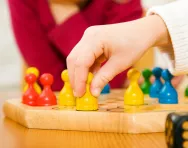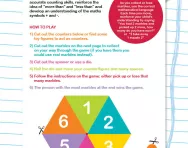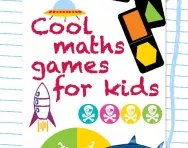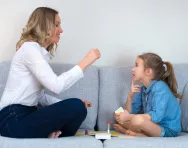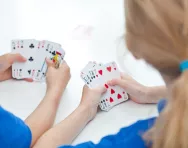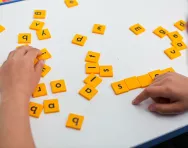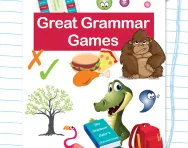Important update from TheSchoolRun
For the past 13 years, TheSchoolRun has been run by a small team of mums working from home, dedicated to providing quality educational resources to primary school parents. Unfortunately, rising supplier costs and falling revenue have made it impossible for us to continue operating, and we’ve had to make the difficult decision to close. The good news: We’ve arranged for another educational provider to take over many of our resources. These will be hosted on a new portal, where the content will be updated and expanded to support your child’s learning.
What this means for subscribers:
- Your subscription is still active, and for now, you can keep using the website as normal — just log in with your usual details to access all our articles and resources*.
- In a few months, all resources will move to the new portal. You’ll continue to have access there until your subscription ends. We’ll send you full details nearer the time.
- As a thank you for your support, we’ll also be sending you 16 primary school eBooks (worth £108.84) to download and keep.
A few changes to be aware of:
- The Learning Journey weekly email has ended, but your child’s plan will still be updated on your dashboard each Monday. Just log in to see the recommended worksheets.
- The 11+ weekly emails have now ended. We sent you all the remaining emails in the series at the end of March — please check your inbox (and spam folder) if you haven’t seen them. You can also follow the full programme here: 11+ Learning Journey.
If you have any questions, please contact us at [email protected]. Thank you for being part of our journey it’s been a privilege to support your family’s learning.
*If you need to reset your password, it will still work as usual. Please check your spam folder if the reset email doesn’t appear in your inbox.
Become a board game family on a budget
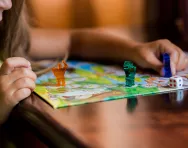
Modern life can be a bit frantic, and finding moments to sit down and engage with our children can be difficult. But it’s lovely when we have moments that draw us together as a family and make us feel like we are making the most of our time together. Step up… board games!
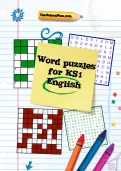
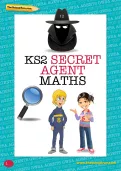
Claim four puzzle packs!
- Word Puzzle Packs
- Numeracy Puzzle Packs
- Challenging and exciting | Boost key skills
Board game family step 1: assemble your boards!
Start by taking a good look at your current collection.
As a family, empty the cupboards and do a games audit. Go through each box, check for missing components and substitute with other items if needed (Professor Plum looks better as a Lego cowboy anyway!). Just sorting through the boxes will trigger your children’s interest in playing some of the games.
Don’t neglect the packs of cards, dominoes and dice – there are thousands of games you can play with a basic kit, even just pen and paper. TheSchoolRun has lots of educational game boards to print out, or search online to find printable board games (there are lots of DIY game ideas on The Dark Imp blog to get you started).
Board game family step 2: adapt for your player mix
Create your own house rules to adapt games so that they are suitable to play with a range of ages. Younger players can be given an advantage when playing games that are more strategic – more cards in Cluedo for example, or a 8 points to win (instead of the usual 10) in Catan.
You can also add your own rules to adapt game length, shortening or lengthening the game to suit your family and the time available: add or remove rounds, change victory conditions or modify the number of resources available to players.
If you have any games that you feel your children have outgrown, challenge them to adapt the rules to make the game more interesting.
Make Snakes and Ladders more strategic by adding track extensions, finding ways for players to manipulate the dice rolls, add counters on squares that give you movement choices later in the game.
Adapting games you already have is a great way to delve into board game design. Make new event cards for a game you love, create a mix between two different games using the board from one and the components from another or assign asymmetric special abilities to bring new life to old game characters.
Board game family step 3: become a board game designer
Setting a board game design challenge for your children is an excellent home education task. They can work individually or together or supported by you. Try one of these:
- Design a game that uses one standard pack of playing cards and six dice
- Design a game around a specific mechanism (for example bidding, set collection or acting)
- Design a game that uses only a custom set of 12 cards
- Design a game where movement is not determined by a dice or spinner.
It would be a mistake to underestimate the impact of the board game design on personal creativity and skill development. Many other creative projects focus on the arts, but board game design also allows you to develop mathematical and logical creativity – a worthy home-education pursuit!
Board game family step 4: make your own game
If you’re looking for a crafting project, try a Print and Play (PnP) game.
There are hundreds of games that are available to download cheaply or for free, which can be constructed with just a printer, some card and some basic crafting tools (Cheapass Games is a good place to start).
Or maybe you’d like to join me to play a board game! I’m running free online family board game sessions weekly while schools are closed – just register your interest.
Free, branded PnP games are also available – Pipes and Ladders, a new take on the classic Snakes & Ladders, has been created by Lanes for Drains. The aim is for players to enter the sewers and make their way safely through to the seas, while the snakes have been replaced by dirty drain pipes, clogged with wet wipes, plastic products and fat, oil and grease (FOG)!
Board game family step 5: teach your kids life lessons through play
To make family game playing as harmonious as possible, adopt the mantra, “Play to win, but don’t need to win”.
Praise your children when they demonstrate good sportsmanship; when they win well and lose well.
Praise them when they make interesting game play decisions – shift the focus away from the final outcome to the process of playing.
Avoid rigged victories at all costs! Letting children win just perpetuates their need to win (here are 7 reasons why you shouldn’t ‘let’ children win at board games.)
If your children have a laser focus on winning, try playing games in teams where the focus is less on individual performance. Cooperative games like Forbidden Desert and Horrified allow players to work together to try to beat the game; everyone loses or everyone wins.
Family board games to stock up on
This is an excellent time to invest in some great family board games. If you work out how much a good game costs you per play, it will be some of the cheapest family entertainment you’ve ever enjoyed!
Whatever theme you're interested or the age of your players, there are loads of options to choose from. TheSchoolRun loves these educational picks:
Whilst many companies aren’t operating at the moment, some small board games publishers, including The Dark Imp, are still delivering. Support the little guys!
Ellie Dix is a board game designer, owner of The Dark Imp and author of The Board Game Family: Reclaim your children from the screen.
Purchase The Board Game Family directly from the publisher and receive 30% off and free postage for the duration of the school closures, with the checkout code CPD30.
